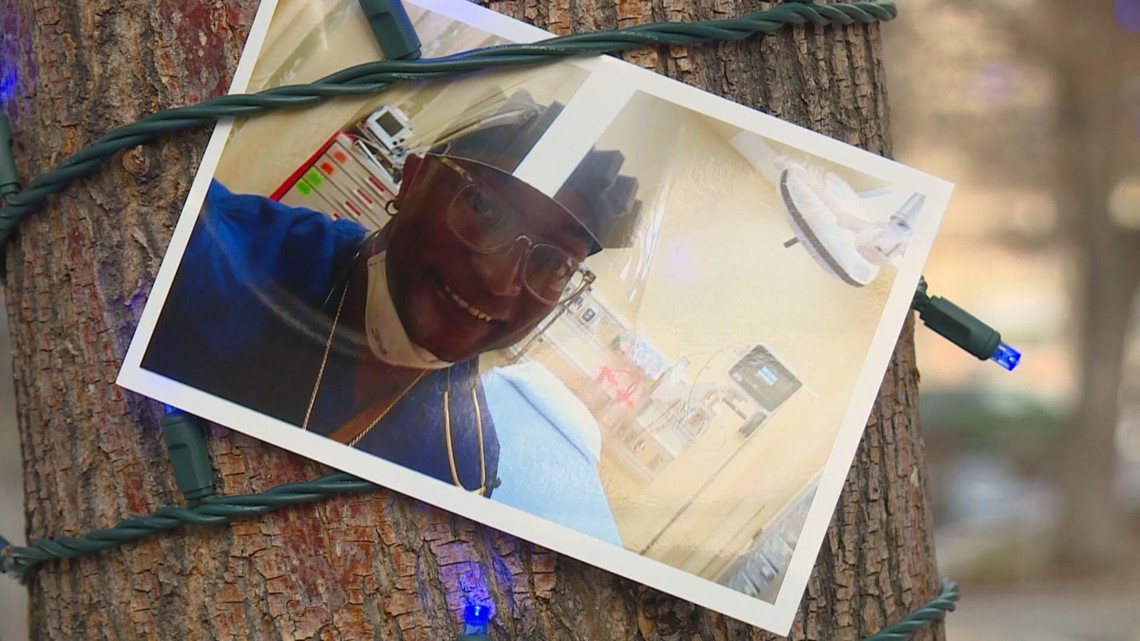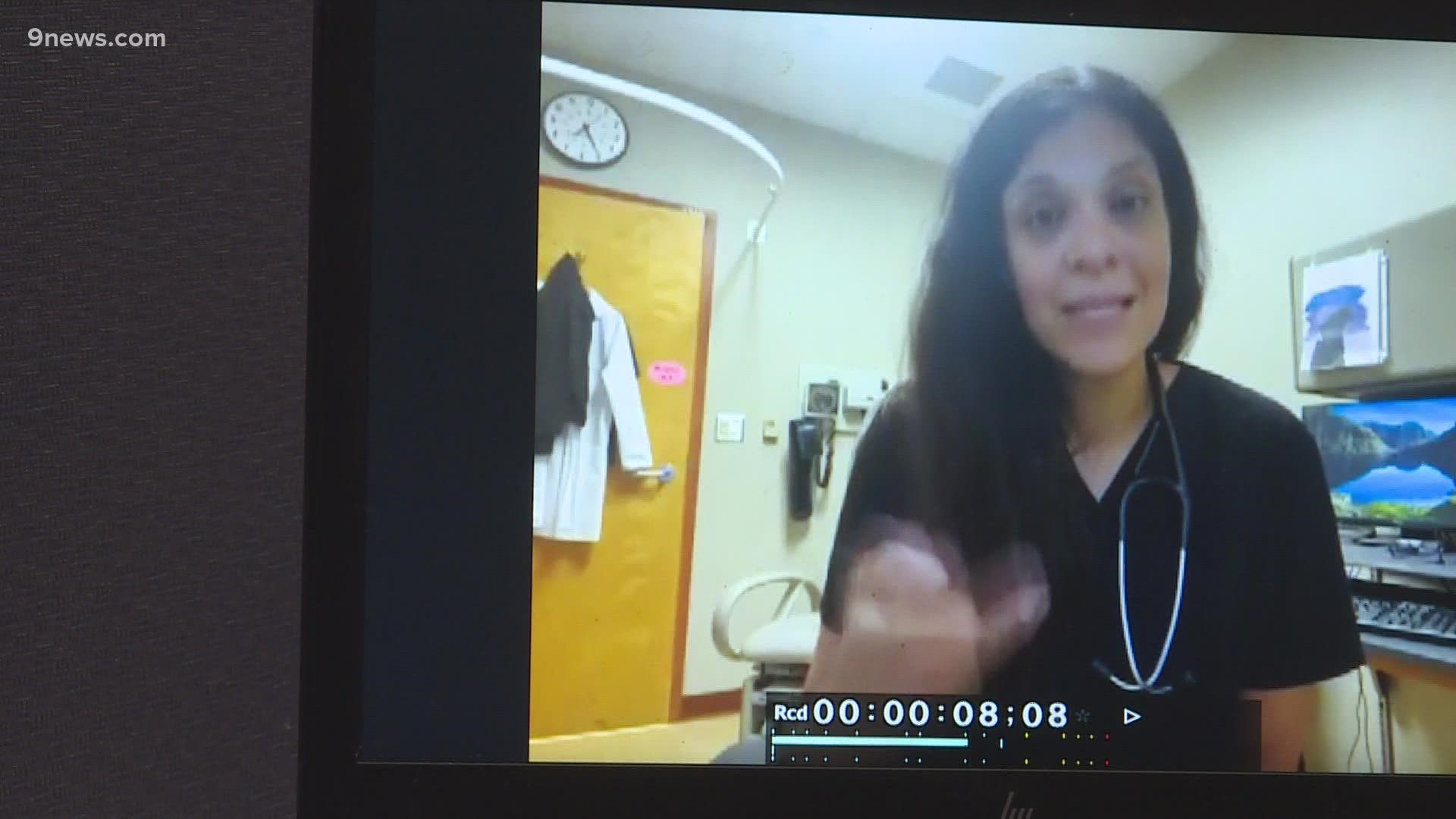COLORADO, USA — For 18 months, Grover Street has been traveling the country treating COVID-19 patients.
“I'm in Oceanside, New York, right now,” he said.
Street, a nurse, works for Colorado-based Fastaff Travel Nursing. He has worked throughout the pandemic, treating the sickest patients. When he’s not traveling, he calls Colorado home.
When vaccines opened to the general population, he and other health-care workers expected the burden to ease.
And it did, for a while.
“When I first got here [in New York] … I think what I was hearing was 70% of people here on the island have been vaccinated," he said. "I was like, this will be a cool assignment. Two weeks after that, it exploded. We’ve got COVID patients throughout the hospital right now.”


Most of those patients are unvaccinated, Street said. They are trending younger and younger than the patients he saw last year.
“The sad truth of the matter is, with these unvaccinated patients, they’re younger," he said. "I’ve had 25-30 somethings, 40-year-olds. … And they’re like, really sick with the delta strain.”
Street said he asks his unvaccinated patients to make him a promise.
“I ask them, ‘If you get out of this alive, will you take the vaccine?’ ”
He said most are quick to say yes, scared by how close they came to serious illness or death.
The pace was grueling.
Hospitals everywhere are facing staffing shortages. Like so many other health-care workers, Street said he feels the burnout.
“The level of stress with the patients ... the hostility, the aggression of patients, families ... health-care workers, people arguing all the time …” He listed off the frustrations. “People who don’t see what’s going on, if they really knew what’s going on, they would get vaccinated. They would get vaccinated.”
Dr. Comilla Sasson, an ER physician based in Colorado, has taken several traveling assignments across the country as well.
“I knew I could be at home, working my shifts at home, but I knew there was a calling. Right?" she said. "I wanted to go out and help people because I knew these places were struggling and needed docs who knew what they were doing."
But each trip is a sacrifice – away from her day job, her family – including two little kids, and a risk she takes for her own health. She said she's feeling the burnout, too.
“I’ve been told I’m not a real doctor," she said. "I’ve had somebody tell me COVID’s not real, even though I showed him the COVID test that was positive for that patient. Hostile, aggressive. It’s been tough."
RELATED: "Everybody is running on empty" Inside Intensive Care Units, battling yet another wave of the virus
“It doesn’t end," she said. "It’s not like my days are over when I finish my ER shift. I go home, and now it's figuring out if my kids are safe in school. Trying to figure out whether or not we should do sports this year. It feels like it’s never-ending, especially as a doctor and a mom. It’s hard. It’s been a really hard year.”
But the requests for help keep coming. Just this week, Sasson said recruiters asked her multiple times whether she could travel to Texas or Mississippi for another assignment. She’s starting to reconsider.
“It’s hard, right? A lot of these states, Texas is the one I’m thinking about more than most, it’s a place where I know the governor [is] trying to ban masks. He’s actively trying to ban vaccinations that are mandatory,” she said.
“And part of me says – gosh, it’s hard to say I’m going to leave my family, I’m going to put myself in literally the most infectious pandemic that we’ve ever had in our lifetime, and I’m going to leave my family for 12 weeks. Oh, but you know, there are [COVID precautions] that could be done right now that could save all of this heartache.”
This time, Sasson said she passed on the travel assignment and continues to treat patients closer to home.
The decision to say “no” wasn’t easy.
“That part of me that wants to say 'yes,' I’m going to help anybody that needs it," she said. "And I’ve done that for the last year. But there’s also that part of me that’s like – gosh, there’s a lot of stuff that can be done without [thousands of] new health-care workers that are literally going to leave their communities to come to a different community to help out when there is simple public health things that can be done.”
Like Street, she said she works every day to try to persuade her patients to get vaccinated. If someone comes into her hospital with COVID, vaccinated or not, she’ll treat them.
SUGGESTED VIDEOS: Latest from 9NEWS

